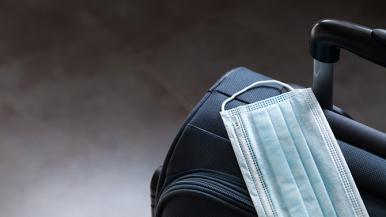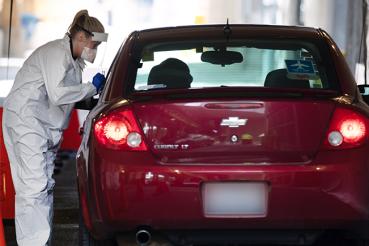It was the day after Thanksgiving, and I was getting ready to check out the deals for Black Friday when I received a news notification of a story with the headline New Coronavirus Variant Arrives in Europe, Sets Off Global Fears and Restrictions.
It was in that moment that I knew the trip I planned with my friends for over a year to South Africa for the holidays — and my first international trip since the COVID-19 pandemic started — was going to be canceled.
We had big plans to go on a safari, visit museums and travel up Table Mountain — the highest point in Cape Town.
But my heart sank as I read that the omicron variant was potentially more contagious than the delta variant, and that 27 countries at the time were planning to put travel restrictions in place by the end of the weekend — including South Africa and the U.S.
Anxiety of the unknown
I immediately texted the article to my friend, who I was supposed to be traveling with, which kicked off the race to learn more about the variant and travel restrictions.
I had a flood of thoughts: What is this new variant? Is the airline going to cancel my flights or do I have to? Did I get flight insurance? Will I get a refund for the Airbnb and activities?
The one question I did not have is whether or not I would still be going on the trip — safety was most important. It seems that anything COVID-19-related gets worse before it gets better, so I found it best to cancel the trip, regardless of being fully vaccinated and boosted.
By Sunday morning, I was on the phone coordinating cancellations and talking through the disappointment with my friends and family about another plan interrupted by COVID-19.
The omicron variant
According to the Washington Post, researchers in South Africa used advanced genomic sequencing to identify the omicron variant, with the first few cases being detected Australia, Belgium, Botswana, Britain, Canada, Denmark, Germany, Israel, Italy, among other countries.
The article suggests that so far scientists believe that omicron’s high number of mutations has the potential to be more transmissible and cause future surges. And while there will be more to learn in the coming weeks, countries across the globe have been quick to take action to help slow the spread.
Though there are currently only a couple reported omicron cases in the U.S., it’s likely only a matter of time. We were given a heads up, and it’s important that we address it and take precaution.
Protect yourself and others
If you’re upset that your holiday plans or vacations are canceled due to COVID-19, trust me — I am, too.
And yet, thanks to scientists, there’s a way to limit the impact, all while keeping yourself and others safe — and it’s by doing our part to get the vaccine and booster shot.
If you haven’t already, I encourage you to talk to your doctor, or visit a local clinic or pharmacy, for more information on the COVID-19 vaccine and booster shot, which is now available for all adults.
Although it’s been a hectic and stressful few days, I’m grateful to have learned about the omicron variant before my trip, for my health and safety, and for the opportunity to now spend the holidays with my family.
One day I’ll get to South Africa — just not this year but hopefully sometime soon.





